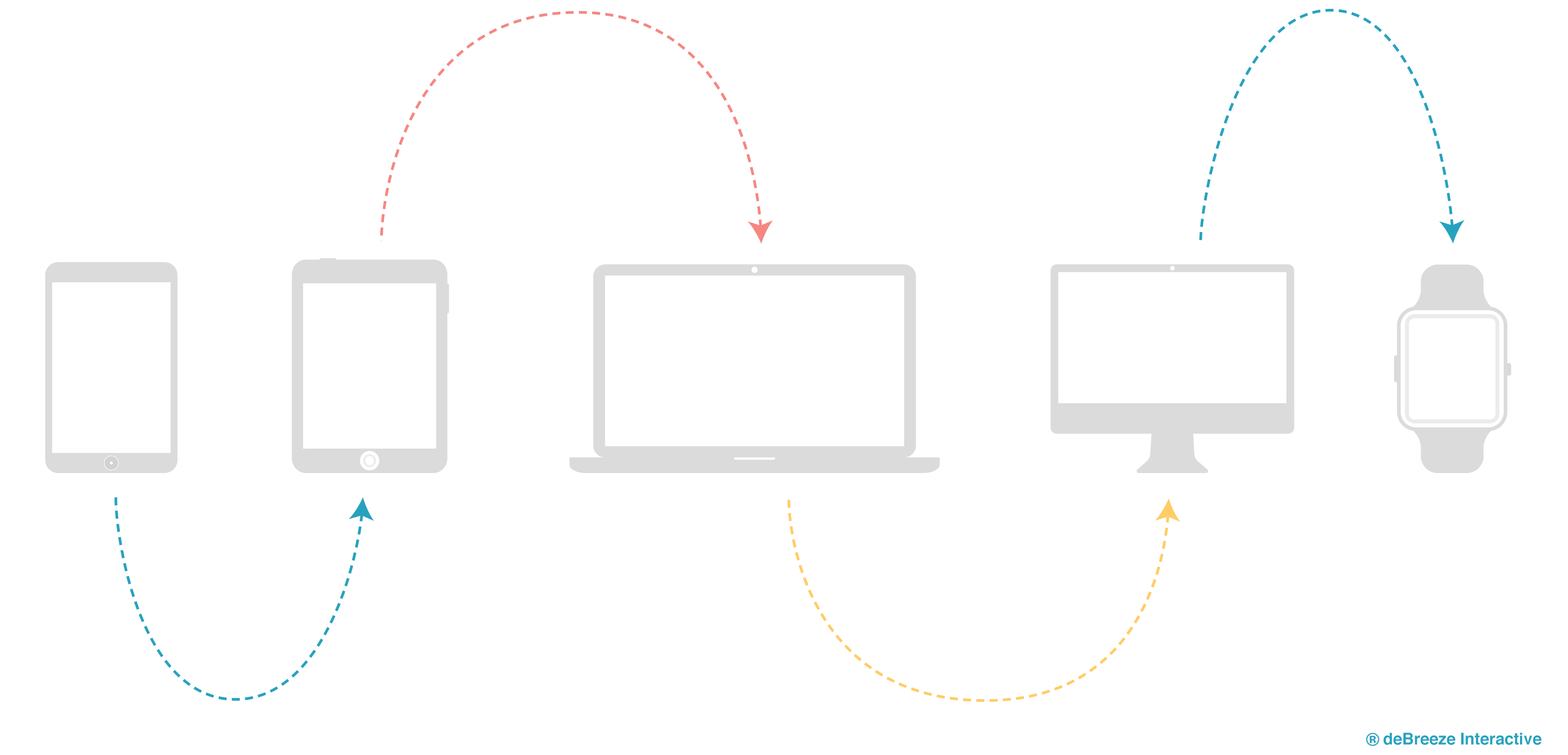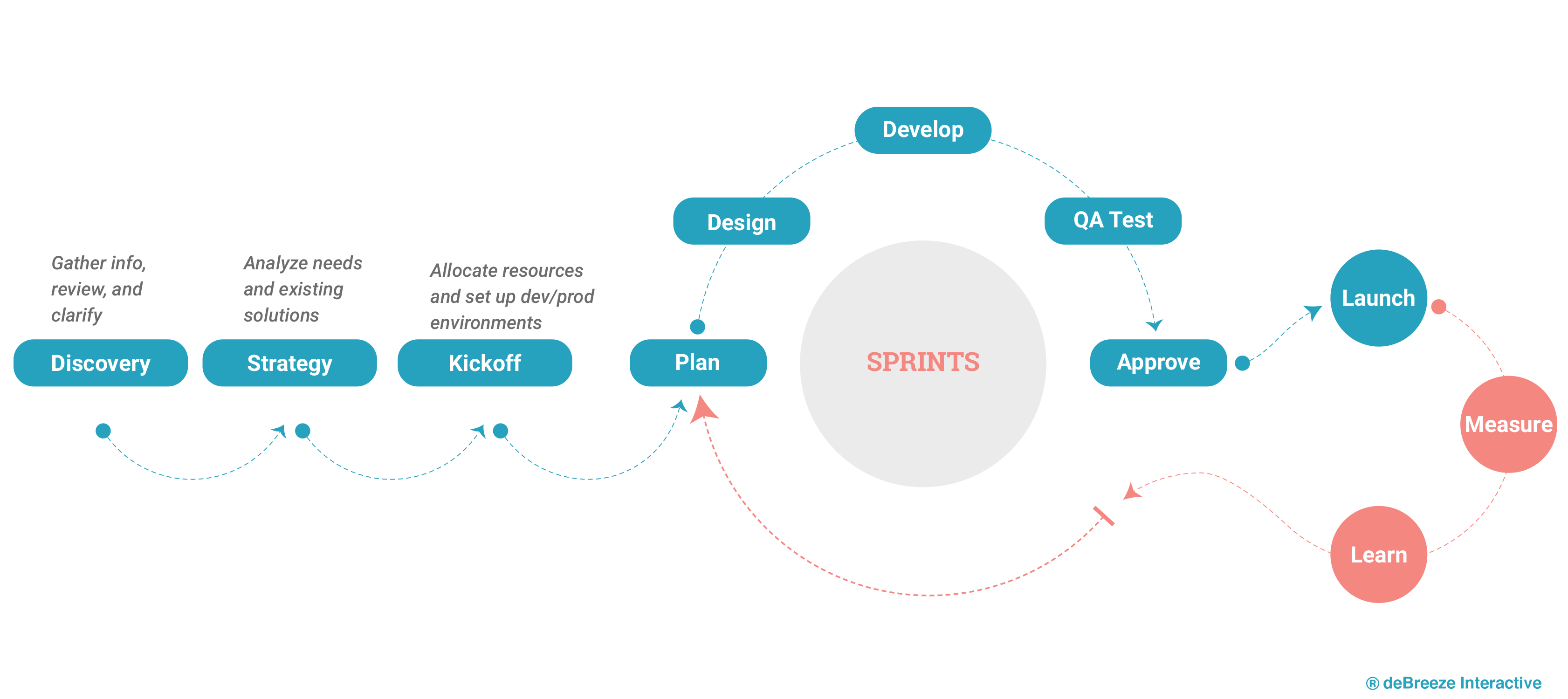enterprise
software
Enterprise Mobile & Web Product Development
Enterprise Software Services
Your business needs a reliable software solution to provide mission critical support to achieve organizational objectives. Built iteratively to scale, it should automate and support cross-departmental processes, collect large amount of organizational data, process complex data to output insightful analytics, leverage business intelligence to improve widespread organizational performance, and ultimately grow business.
product
Custom Software Development
Some business needs require custom software solutions that can’t be met by off-the-shelf alternatives. Bespoke solutions for enterprise systems call for specialized set of tools, expertise, and ongoing support. Leveraging industry standard technology stacks, our team develops tailored software solutions to address specific challenges.
Learn more about how our team can help you define your business requirements to iteratively develop and release scalable solutions.
extend
Enterprise Systems Integration
The right third party cloud solutions significantly improve business process efficiencies. Equally important is the consideration of how these solutions integrate with existing systems your team depends on and how they fit into the overall workflows of your company. Volimtech has successfully integrated enterprise software infrastructure for a variety of sectors to support information, resource planning, customer relationships, sales and marketing automation and so on.
Learn more about how you can benefit from enterprise cloud integrations.
Upgrade
LEGACY SYSTEMS MODERNIZATION
Legacy systems critical to daily operations should evolve to fulfill changing business needs and industry standards. Limitations and inefficiencies caused by outdated systems cause hamper productivity, experience, and overall growth. Starting with an in-depth technical audit, our team will help you identify system inefficiencies and curate a actionable solutions.
Learn more about how you can prepare your legacy system for the digital future and improve your organization’s agility and efficiency.
Development Capabilities
App Platforms
Android
Android
IOS
IOS
Desktop
Desktop
Cloud
Cloud
Technologies
JavaScript
JavaScript
JAVA
JAVA
.NET
.NET
PHP
PHP
Swift
Swift
Android
Android
Kotlin
Kotlin
Servers & Databases
MS SQL
MS SQL
MySQL
MySQL
PostGreSQL
PostGreSQL
MongoDB
MongoDB
Redis
Redis
Oracle
Oracle
SQL Lite
SQL Lite
DevOps
AWS
AWS
HubSpot COS
HubSpot Cos
Docker
Docker
Azure
Azure
Frameworks
Angular JS
Angular JS
React JS
React JS
Node JS
Node JS
Vue JS
Vue JS
Laravel
Laravel
Yii
Yii
CMS
Magento
Magento
Sharepoint
Sharepoint
Joomla
Joomla
Wordpress
Wordpress
Agile Process and MVP's
The balance between cost and time-to-insight is one of the common challenges faced by startups building a new product or enterprises exploring new opportunities. The lean startup approach of minimum viable products (MVP’s) is an outcome of these challenges. The concept is simple—quickly build the smallest yet fully functional version of the idea into a product to test and analyze by following the build-measure-learn process, with clear success and failure metrics.
MVP’s are now integrated as a critical part of the digital product development process and/or a proof of concept by startups and enterprises, allowing businesses to test a product hypothesis with minimal resources.
MVP as a Process
As a process, MVP’s enable businesses to gain immediate value while minimizing costs. That means, quickly building the core functionality that could be tested to learn more about the end-user and validate or invalidate assumptions. Validation clarifies the sequential steps for continuing down the set development path and iteratively building in small steps, reducing risks, cost, and overcommitting. By invalidating assumptions, MVP’s provide insight into what users want and consider pivoting with future iterations that better serve customers.
MVP as a Proof of Concept
In some instances, an MVP serves the purpose of proving a concept. Quickly built with the core features to solve a specific problem, it can gain early adopters. This helps teams prove the merit of the business potential and strengthens a position to win buy-in from internal stakeholders or external investors. So leverage this powerful approach and start testing product hypothesis and market viability with minimal investment with the help of an MVP as a proof of concept.
Mobility and Accessibility
With capabilities like geo-locations that are unique to mobile devices, enterprise mobile applications present opportunities for personalized engagement with a targeted audience. They empower the sales teams managing customer journeys, account teams to increase their ability to manage expectations, HR teams to provide employee accessibility, and all teams to collaborate. This enables the business to capture valuable engagement data that provides actionable insights to iteratively personalize, optimize, improve customer experiences.

It’s time for enterprises to drive growth not only by delivering experiences that go beyond digital touch points but also delighting customers with seamless cross-channel experiences any time, any place.
Accessibility
Native mobile applications present new opportunities for designing unique gesture interactions to deliver experiences. Other content is suitable to be served through web that is optimized for mobile. A hybrid approach—optimized web pages for wrapped in a mobile application—is catching on quick.
Experience
It is not enough that users can view their data on their mobile devices; they want to continue their interaction across multiple devices, as part of a seamless customer journey. Users have become device-agnostic and expect the enterprise portal to provide a smooth and consistent cross-channel experience.








